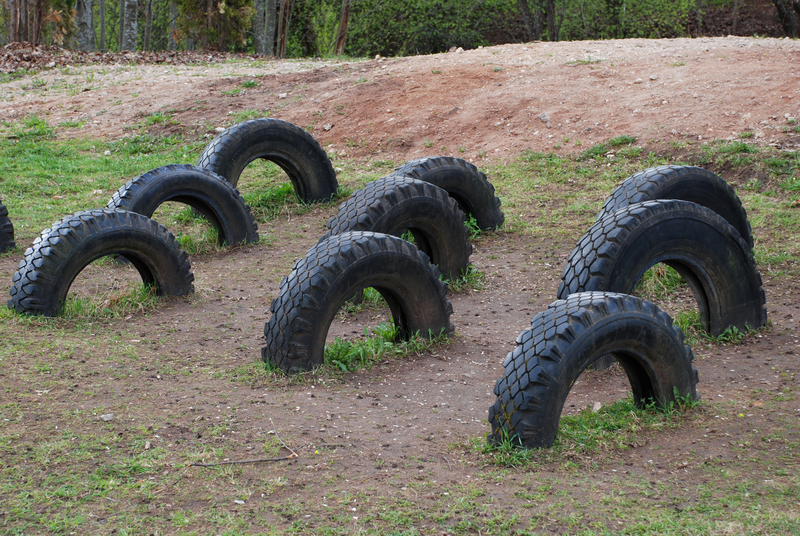Simple Practices for Less Household Waste
Living sustainably has become more important than ever. With landfills expanding and pollution making headlines, reducing household waste is a step each of us can take toward a healthier planet. Whether you're a beginner or already practicing eco-friendly habits, there are simple ways to generate less waste at home that easily fit into your daily routines.

Why Reducing Household Waste Matters
Millions of tons of household garbage end up in landfills or incinerators every year. Not only does this pollute our air and water, it also depletes natural resources and contributes to climate change. By embracing waste reduction household strategies, you can help preserve our environment and often save money in the process.
Benefits of Less Household Waste
- Saves Money: Buying less and reusing more means you'll spend less.
- Reduces Pollution: Less rubbish reduces landfill use and emissions.
- Supports a Sustainable Lifestyle: Small changes lead to big environmental impacts.
- Promotes Resource Conservation: Conserves trees, water and energy.
Top Simple Practices for Less Household Waste
Read on for practical methods to minimize the trash your home generates. These suggestions are simple, actionable, and effective whether you live alone or with a large family.
1. Refuse Single-Use Products
Perhaps the easiest way to curb waste at home is to just say "no" to single-use items. This includes plastic takeaway containers, straws, disposable cups, cutlery, and napkins. Whenever possible, choose reusable alternatives.
- Invest in a reusable water bottle, coffee cup and shopping bag.
- Bring your produce bags for fruits and veggies.
- Decline plastic cutlery when ordering takeout.
- Buy products in bulk to minimize packaging.
2. Reuse and Repurpose Before You Recycle
Before sending an item to the recycling bin, consider another life for it. Glass jars make great storage containers. Old t-shirts can become cleaning rags. Cardboard boxes can be repurposed for storage or crafts. Reusable options are often more durable and save you money as well.
- Glass jars for pantry storage
- Cloth napkins and towels
- Reusable food wraps instead of cling film
- Mason jars for drinking glasses or vases
- Turn old clothes into cleaning rags
3. Compost Food and Yard Waste
Did you know food scraps are the single largest component in many landfills? Setting up a home compost system can reduce your trash by up to 30%! Composting is simpler than you think, whether you have a garden or live in an apartment.
- Use a countertop bin for collecting fruit and veggie scraps
- Compost egg shells, coffee grounds, and yard clippings
- Check local programs for community compost drop-off sites
- Avoid composting meat and dairy unless you use special composters
4. Shop Smarter and Plan Meals
*Food waste* is a major contributor to household trash. By shopping with intention and planning meals, you can dramatically cut the amount of food that gets thrown away.
- Make a grocery list and stick to it.
- Buy only what you need for the week.
- Use up leftovers creatively--think soups, stir-fries, or casseroles.
- Avoid impulse purchases that may not get used.
- Store food properly to extend its shelf life.
5. Repair, Don't Replace
Many things that break around the house can be fixed with minor effort. Learning a few basic repair skills or seeking local repair services delays items from ending up in the dump.
- Sew or patch up torn clothing
- Fix appliances or electronics with simple repairs
- Find local repair cafes or workshops
6. Rethink Paper Products
From junk mail to paper towels, paper makes up a large chunk of household waste. With a few tweaks, you can drastically reduce how much paper you throw away.
- Switch to digital bills and statements to cut down on mail.
- Cancel unwanted subscriptions and junk mail.
- Use cloth rags and towels instead of paper towels whenever possible.
- Choose recycled paper products when you must use paper.
- Reuse the blank side of printed paper for notes and lists.
7. Mindful Recycling
While recycling is important, it should not be your first resort. Not all plastics, glass, or metals are recyclable in every community, and contamination can mean recyclables still end up in landfills. Learn your area's guidelines to maximize your recycling effectiveness.
- Rinse containers before recycling to avoid contamination.
- Sort items properly--mixing materials can impede processing.
- Take batteries, electronics, and hazardous waste to designated centers.
- Support manufacturers that use recycled content.
8. Donate or Swap Unused Items
Next time you tidy up, consider giving new life to unloved items. Donation and swapping keep things like clothing, furniture, and gadgets out of the landfill while helping others.
- Donate clothes, books, and toys to local charities or thrift stores.
- Host or join a community swap event.
- Sell unused electronics or home goods online.
9. Choose Durable, Multi-Use Products
Invest in items made to last! Buying well-made, reusable goods--such as stainless steel razors, bamboo toothbrushes, and quality cookware--greatly reduces the volume of waste over time compared to disposable alternatives.
- Stainless steel or glass food containers
- Bamboo or silicone utensils
- Rechargeable batteries
- LED light bulbs
10. Educate and Get the Household On Board
Waste reduction works best when everyone's involved. *Share your waste reduction goals* with family or housemates, and create easy systems for sorting waste, composting, and recycling. Set clear reminders and use labeled bins for clarity.
- Display a waste reduction checklist on the fridge
- Assign roles for composting or recycling days
- Encourage everyone to suggest new waste-saving ideas
Extra Tips to Reduce Household Trash
- Buy in bulk and avoid individually packaged items whenever possible.
- Choose packaging made from recycled materials.
- Switch to digital subscriptions for newspapers and magazines.
- Use bar soap instead of bottled soap.
- Grow your own herbs and some veggies to cut packaging waste and food miles.
- Make homemade cleaning products in reusable containers.
- Start a leftover night once a week to empty the fridge creatively.
Seasonal and Special Event Waste Reduction
Waste can spike around holidays, birthdays, and other special events. Plan ahead to minimize your impact:
- Use reusable decorations and tableware for parties.
- Give experiences or digital gifts instead of physical items.
- Wrap gifts in reusable bags or fabric scraps.
- Compost food scraps from gatherings.
Overcoming Common Barriers
Lack of Time and Convenience
- Start small. Pick one or two changes to implement first.
- Keep reusable items in easy-to-access places, like near the door.
- Choose quick compost solutions (like Bokashi bins) if you have little space.
Family Buy-In
- Make waste reduction a fun family challenge with rewards for meeting goals.
- Share facts about environmental impact to inspire change.
Limited Recycling Options
- Look for local drop-off centers for harder-to-recycle materials.
- Join community groups to share solutions or bulk-buy items with others.
Measuring Your Success
Track your progress to stay motivated. Try weighing your trash bags before and after implementing waste reduction practices. Keep a log of items you've donated, repaired, or repurposed. Celebrate the difference you make!

Simple Household Waste Reduction: The Takeaway
Living with less household waste doesn't require a complete lifestyle overhaul. By taking small, consistent steps--such as switching to reusables, composting organics, ditching single-use plastics, and rethinking your daily habits--you'll soon see a significant drop in your household trash. Not only does this help the planet, but it also encourages mindful consumption, savings, and a more organized home.
Start Today--Every Small Step Counts!
Embrace simplicity: pick one or two new practices and add more as you go. Share your journey with others--small changes inspire bigger community impacts. Collectively, these efforts pay off with a cleaner, more sustainable world for generations to come.
Recommended Resources for Reducing Household Waste
- EPA Guide to Reducing Waste: Useful tips for individuals and families
- Zero Waste Home: Inspiration and tools for home waste reduction
- Local Municipal Recycling Guidelines: Check your city's website for specifics
- Community Compost Programs: Search for local initiatives
Ready to tackle less household waste? Use these simple, effective practices to transform your home's waste footprint and become part of the movement for a cleaner planet.